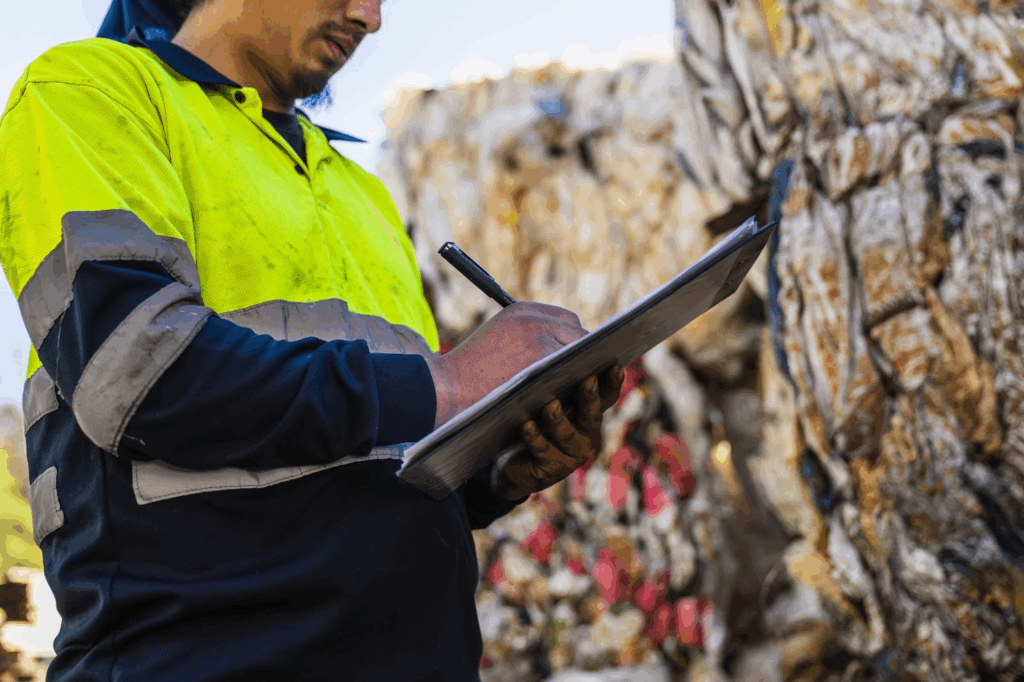Business owners often underestimate how quickly waste management issues turn into compliance risks. Overflowing dumpsters, untracked hazardous materials, or unsecured document disposal can trigger audits and heavy fines. Communities and regulators are stricter than ever about how companies handle their trash. To keep operations safe and compliant, businesses need structured trash removal solutions that meet legal and practical demands.
Trash Removal and Business Compliance Requirements
Trash removal connects directly to compliance because businesses must follow legal, environmental, and safety regulations when discarding waste. Rules cover everything from recycling to hazardous material handling; missing even one requirement can lead to penalties. Communities expect companies to manage waste responsibly for appearances, safety, and sustainability. Businesses prioritizing organized trash removal build trust, avoid risks, and maintain steady operations.
Legal Regulations Governing Trash Removal
Regulations dictate how businesses handle their waste at the local, state, and federal levels. Industries such as food service and healthcare face stricter guidelines due to public health risks. Fines, license suspensions, and lawsuits often follow violations when companies ignore these rules. Compliance starts with understanding what regulations apply to a specific industry and location. Documented removal practices then serve as proof during audits and inspections. Businesses that treat compliance as routine reduce exposure to costly enforcement actions.
Environmental Responsibilities in Waste Disposal
Improper waste handling damages ecosystems and harms community health. Trash entering landfills without sorting increases methane emissions, while plastics clog waterways and harm wildlife. Environmental agencies often mandate recycling programs and eco-friendly disposal. Businesses that follow these rules strengthen their reputation as responsible community members. Beyond compliance, greener trash removal practices build credibility with customers who value sustainability. Regulatory compliance and environmental responsibility move hand in hand in today’s market.
Health and Safety Benefits of Trash Removal
Unmanaged trash creates unsafe conditions for employees and customers: pests, bacteria, and foul odors spread in environments where waste is ignored. In industries involving chemicals or sharp materials, risks extend to serious workplace injuries. Compliance with OSHA and public health guidelines reduces liability from these hazards. Businesses implementing consistent trash removal follow regulations and protect people on their premises. Safe disposal strengthens both compliance records and employee satisfaction.
Trash Removal Services That Match Industry Needs
Every industry generates waste differently; trash removal solutions must match those unique demands. Restaurants produce food waste, construction generates debris, and offices manage paper and data destruction. Businesses risk compliance gaps that lead to fines or operational delays without tailored services. Reliable solutions adapted to specific industries provide long-term security and compliance confidence.
Commercial Trash Pickup for Businesses
Scheduled trash pickup gives companies a structured system to manage daily waste. Service providers tailor frequency to match business size, industry, and peak seasons. It prevents waste overflow, reduces odor, and keeps facilities presentable for customers. Pickup logs and receipts double as compliance records during inspections. Flexible service agreements help businesses adjust as waste volumes change. Partnering with a commercial pickup service makes compliance predictable and manageable.
Recycling Programs for Compliance and Savings
Many states require businesses to recycle paper, glass, and metal. Specialized programs expand recycling to cover e-waste, organic matter, or hazardous materials. These programs lower landfill costs and create opportunities for tax incentives or rebates. Companies implementing recycling programs comply with legal requirements and appeal to eco-conscious customers. For example, retail chains adopting recycling have lowered operational costs while improving public image. Compliance through recycling demonstrates both efficiency and responsibility.

Secure Document and Data Disposal Services
Businesses handling sensitive information cannot throw documents into the general trash. Regulations such as HIPAA and GDPR require secure shredding or data destruction. Certified shredding services give businesses proof of compliance and protect against identity theft or data breaches. Improper document disposal can cause lawsuits, fines, and reputational damage that outweigh disposal costs. Secure disposal also protects trade secrets and customer trust. Document shredding is no longer optional but a compliance necessity across industries.
How to Choose a Trash Removal Partner
Choosing the right trash removal partner directly impacts compliance performance. Providers with proper certifications, documentation tools, and flexible services make it easier for businesses to meet requirements. Businesses risk relying on outdated or incomplete disposal methods without a qualified partner. A strong partnership creates consistency, reliability, and proof of compliance for regulators.
Licensed and Certified Waste Disposal Providers
Qualified waste disposal providers should show valid licenses for handling waste in specific industries. Hazardous or medical waste often requires additional certifications and training. Businesses must verify that providers follow regional regulations and maintain proper disposal facilities. Choosing unlicensed providers places liability back on the company, even if errors occur offsite. A provider’s compliance history should be reviewed before signing contracts. Licensed partners offer assurance that waste is removed safely and legally.
Record-Keeping and Reporting for Compliance
Documentation is critical during audits, and professional providers deliver the necessary proof. Pickup receipts, disposal logs, and recycling reports show regulators that waste was correctly handled. Digital platforms now allow businesses to track disposal in real time. These systems reduce human error and simplify compliance reporting during inspections. Without proper documentation, even compliant companies can face penalties. Partnering with providers that offer detailed record-keeping strengthens accountability.
Customized Trash Removal Plans
Every business requires a trash removal plan designed for its operations. Hospitals need frequent hazardous waste collection, while offices may prioritize secure document destruction. Providers that adapt services prevent compliance gaps caused by generic programs. Scalability also allows services to grow with the company without interrupting compliance. Tailored plans balance efficiency, cost, and regulatory requirements. Businesses that choose customized services gain both flexibility and security.
Internal Best Practices for Trash Management
Compliance starts inside the business before waste reaches external providers. Organized systems, employee participation, and regular monitoring create a compliance-focused culture. Without these internal practices, even the best providers may face challenges managing waste. Businesses that invest in internal management strengthen both efficiency and regulatory compliance.
Training Employees on Waste Handling Rules
Employees must know how to handle different types of waste. Training sessions outline proper separation of recycling, hazardous waste, and general trash. Regular updates keep staff informed of changing regulations. Businesses that fail to train staff risk compliance violations from unintentional mistakes. Visible signage near disposal stations reinforces training and prevents confusion. Well-trained employees reduce risks and create a safer workplace.

Organizing Waste Stations Across Facilities
Clear waste stations improve compliance by simplifying proper disposal. Color-coded bins with labels help employees quickly identify where items belong. Placing bins in accessible areas reduces the temptation to discard waste improperly. Organized stations also streamline collection for removal providers. Employees and customers notice when waste is well managed, which enhances credibility. Simple setup changes can make compliance easier and more consistent.
Auditing Waste Practices and Systems
Regular audits keep waste management systems efficient and compliant. Managers can schedule inspections to identify weak spots or missed regulations. Feedback from employees often highlights problems overlooked by leadership. Businesses that act on audit findings reduce the risks of violations. Ongoing improvements lower costs and create stronger compliance over time. Auditing is a proactive step that pays off through prevention.
Costs of Ignoring Trash Removal Compliance
Neglecting trash removal compliance creates risks that far outweigh service costs. Businesses face fines, damaged reputations, and even forced closures when regulators step in. Customers lose trust in brands that disregard waste responsibilities. Compliance protects against these risks while supporting smoother operations.
Fines and Legal Liabilities from Waste Violations
Regulators impose fines that can reach thousands of dollars for each violation. Businesses also face lawsuits if improper disposal harms customers or communities. Small companies often struggle most because a single fine can disrupt cash flow. Proper trash removal services prevent these penalties through consistent compliance. Avoiding legal actions preserves both financial stability and reputation. Compliance is ultimately more affordable than paying for violations.
Loss of Customer Trust from Poor Waste Habits
Customers quickly notice when a business manages waste poorly. Negative reviews spread, and competitors gain an advantage. Compliance with trash removal shows responsibility and care for community standards. A clean and organized facility reinforces professionalism in the eyes of clients. Businesses that ignore compliance often lose loyal customers to more responsible competitors. Responsible trash removal builds trust that supports long-term growth.
Business Interruptions and Closures
Authorities may suspend operations when businesses fail to follow trash regulations. Shutdowns disrupt revenue, supply chains, and customer relationships. Recovery after forced closure often costs more than preventative compliance measures. Companies that stay compliant avoid costly interruptions to their workflow. Continuity of service is essential to maintaining customer trust. Trash removal compliance protects businesses from unnecessary shutdowns and instability.
Compliance in Trash Removal as a Business Advantage
Trash removal compliance provides benefits that go beyond avoiding fines. It creates cost savings, strengthens brand image, and supports corporate responsibility goals. Businesses that embrace compliance gain advantages in competitive markets. Compliance is not only protection but a growth opportunity.
Gaining an Edge Through Responsible Practices
Responsible waste management attracts customers who value accountability. Compliance certifications can be displayed as proof of credibility. Businesses exceeding minimum standards often receive recognition from communities and local media. Competitors that ignore waste practices lose ground with customers who care about sustainability. By aligning waste management with brand values, businesses gain a lasting advantage.
Lowering Costs With Efficient Waste Strategies
Smart waste management cuts costs by reducing hauling and landfill fees. Recycling and composting divert materials that would otherwise add expenses. Efficient scheduling prevents unnecessary pickups and keeps service costs balanced. Tax incentives for eco-friendly practices further reduce expenses. Over time, businesses that manage waste effectively see measurable financial benefits. Cost savings add to the overall strength of compliance strategies.
Supporting Corporate Responsibility Commitments
Corporate responsibility initiatives often require evidence of sustainable practices. Waste compliance aligns with ESG goals, which investors and partners increasingly value. Transparent trash removal systems show accountability to both customers and stakeholders. Businesses that highlight responsible practices strengthen their market reputation. Compliance becomes a core part of corporate responsibility, reinforcing trust and growth.
Professional Trash Removal for Compliance Success
Professional trash removal services help businesses stay compliant while focusing on operations. Expert providers handle complex regulations, track disposal, and prevent mistakes that lead to penalties. They also provide support that builds a compliance-focused culture inside the business. Investing in expert services turns trash removal from a liability into a strategic asset.
Working With Experts on Waste Compliance
Professional providers understand the latest waste regulations and industry-specific requirements. They offer training, documentation, and secure disposal that businesses cannot manage alone. Partnerships reduce risks by keeping businesses aligned with compliance standards at all times. Business owners gain peace of mind knowing experts oversee waste removal. Providers also adapt services as regulations or operations change. Expert support ensures that compliance never falls behind.
Building Accountability in Waste Management
Leadership shapes how waste compliance is approached in the workplace. When owners and managers prioritize responsible waste handling, employees follow suit. This shared accountability strengthens resilience during audits or inspections. A culture of responsibility prevents compliance from being seen as a burden. Instead, it becomes part of daily operations that benefits everyone involved. Accountability in waste management drives both compliance and business stability.
Gain Trust and Stability With Expert Trash Removal
Expert trash removal is more than a compliance checkbox—it is a business strategy that builds credibility and long-term stability. Customers respect companies that handle waste responsibly, regulators reward those who follow the rules, and employees value a safe, clean environment. Partnering with professionals turns waste management into a visible sign of accountability that sets your business apart. When you choose expert trash removal, you choose trust, reliability, and a stronger foundation for growth.
Visit the Top Dog Waste Solutions blog to stay informed on compliance and waste strategies.








